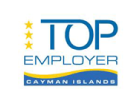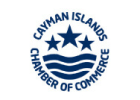What are the Most Desired IT Qualifications in Cayman?
by Adele Keane on January 6, 2023
Are you considering an IT career in Cayman? If you are, it’s important to understand the IT qualifications that employers look for in top talent when hiring in offshore jurisdictions so that you can market yourself as best as possible.
Although the IT offshore industry may be small, it is vibrant. After all, every company in the world needs to have the latest cutting-edge technology running efficiently and cost-effectively on a well-maintained network. Additionally, in the more structured IT departments, there will also be an established hierarchy in place.
So how do you get ahead in the field? Here, we will examine which IT qualifications/certifications are recommended across the various IT sectors.
IT Qualifications
There are four main types of certifications/qualifications that are recommended for offshore roles, regardless of whether you are applying to be CIO, Team Leader, Senior or Junior Team Member (although of course relevant to the type of position applied for).
In many jurisdictions, qualifications are not a deal-breaker (or even essential in some cases) for tech workers, as experience can be the most significant learning experience anyone can have. Working your way through the ranks from IT support to senior network engineer without a degree could even be quite common, especially in years gone by. Unfortunately, that is not the case here, and although there are some exceptions, a degree or updated certifications are often a prerequisite for roles here.
There are a couple of reasons for this, with immigration being the predominant one. Aside from that, a lot of the managed services providers have strong vendor relationships with course providers & like to be able to tell clients that all staff either have or are working towards the latest certs.
The four main qualification areas are:
1. Education (Degree, Masters, Diploma)
2. Software Development
3. Network / Server
4. Project / Miscellaneous
Education:
Most employers, when requesting specific qualifications relating to education, will be referring to university. In IT circles, you can’t go wrong with a Degree or Masters in any of the following; Information Technology, Computer Science, Computer Engineering, Information Systems Management, and Computer Systems Technology. Of course, this is only a brief list as all universities and education facilities will have their unique paths, however, I’m sure you get the picture.
Alternatively, many companies will also accept a Degree or Masters in a subject more relevant to their core activity. Offshore this may include; Mathematics, Business Administration, Finance, Accounting, Engineering, and Science. Study and a relevant qualification in any of the above will undoubtedly put you to the top of the list.
Software:
There are so many types of software accreditations available; at times, it can be challenging to keep up. This is especially the case with IT because so many certificates and qualifications are upgraded every couple of years to keep pace with the new releases of various technologies. Without delving too deeply into the rationale behind the following certificates (many of which should hopefully be second nature or self-explanatory), these are the ones that feature most prominently on employers’ candidate wish lists.
- Microsoft qualifications are often at the top of the wish list, as the majority of companies on island are Microsoft based. For a comprehensive listing of all Microsoft qualifications from .NET developer to Microsoft Certified Professional, including all specific technologies like SQL, SharePoint, and Great Plains, this link is a great place to start. This article also includes qualifications relevant to a Networker.
- Cloud-based development, especially using Azure, is becoming more common among companies here, so no harm doing some courses in that area also.
- Additionally, there are specific certifications for Databases – Oracle, SAP, PeopleSoft, JD Edwards all run schemes – however, it’s worth noting that the most popular Offshore are Microsoft SQL and Access, Oracle, and SAP. As the company list here in Cayman grows, there are certainly some exceptions to these key technologies, with a small proportion delving into Python & cloud-based AWS.
These are some (by no means all) of the major certificates requested, however, if you wish to go down the developer/programmer route, they are an excellent place to start. It’s also worth noting here that while qualifications are important within the programming world if you are a talented developer without these, it is still worth reaching out. I would encourage any programmers to have a portfolio (on GitHub or something similar) to be able to showcase your work. I have seen exceptions made in some instances where a super strong candidate has blown a client away with their work.
Network/Server:
For a networker, again, there are many different types of accreditation, which you can see a comprehensive list here; Microsoft products, certifications for Servers, Databases, and Exchanges are all highly recommended to be a Network Engineer, Infrastructure specialist and so on.
Most networks across the world are created using Cisco or IBM technologies. I feel Cisco to be more suitable to those with offshore aspirations, so getting on the ladder with any of these is highly recommended, read more about CISCO certifications here. It goes without saying that with Cisco qualifications is an inherent knowledge of routers, switches, firewalls, telephony, cabling, and physical networks.
In this day and age and with the types of companies found offshore (Financial Services, Legal, and Public Practice), there is a considerable demand for Security and Information specialists. By no means all, but the highly sought-after qualifications are in VMware, ISO, CISSP, PCI, COBIT, GIAC, CISM, CEH, CompTIA Security +, OSCP, CCSP, and CCSA.
Again, this is only a populous list of the accreditations sought after by employers for Networker, Server and Security specialists looking to work in offshore jurisdictions.
Project/Miscellaneous IT Qualifications:
Other qualifications can be featured on the wish lists of employers; These can’t be pigeonholed into the above, but again, come highly recommended. They are more pertinent to the more senior IT candidates and those with project and methodology exposure. For instance, Prince II, Six Sigma, ITIL, PMP, PMI, SOA, OOA, Agile, Scrum, & Waterfall.
These, while not having the immediate commercial gains as say a CCNA or .Net Developmental certificate, are of value because they demonstrate an understanding of the methodologies based on iterative and spiral developments proving demonstrable cross-team and architectural expertise. For example, with project management & business analyst positions (both areas which are incredibly competitive for overseas candidates), the above qualifications could likely be a differentiating factor between candidates.
In many cases in today’s saturated candidate market, it may prove that an additional qualification or certificate is enough to capture that all-important interview. As this is the case, I hope the information above proves to be of some value to help form an understanding of what employers are looking for in candidates and also enable you to get a leg up on the competition when planning your next career move.
If you are interested in speaking about IT opportunities, please
register as a candidate and I will be in touch as soon as possible to discuss your profile in more detail. For more information about securing an IT position in Cayman, read our FAQs here.
SHARE THIS ARTICLE
Recent Articles







